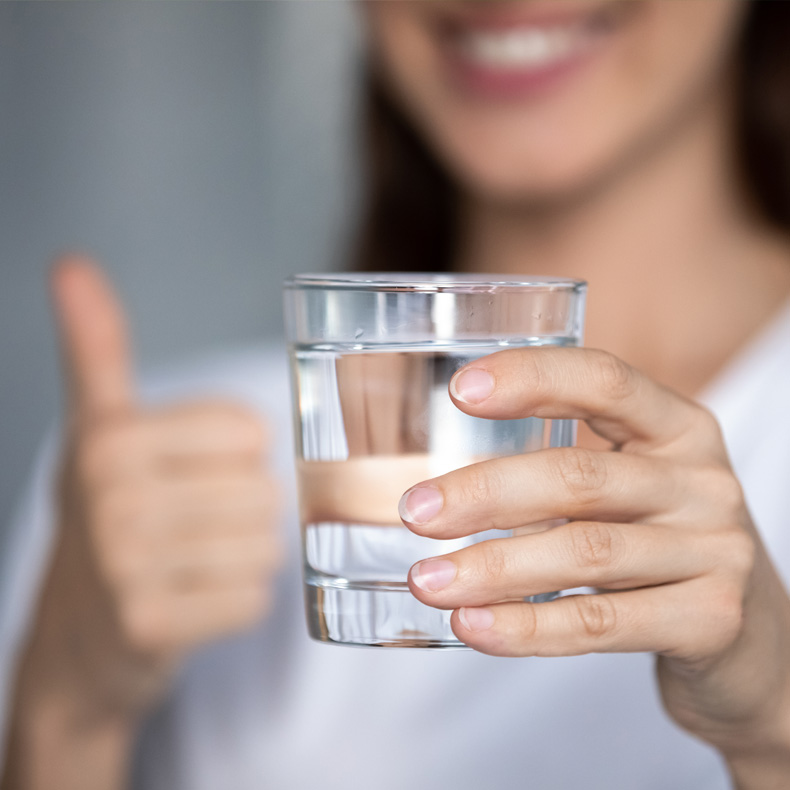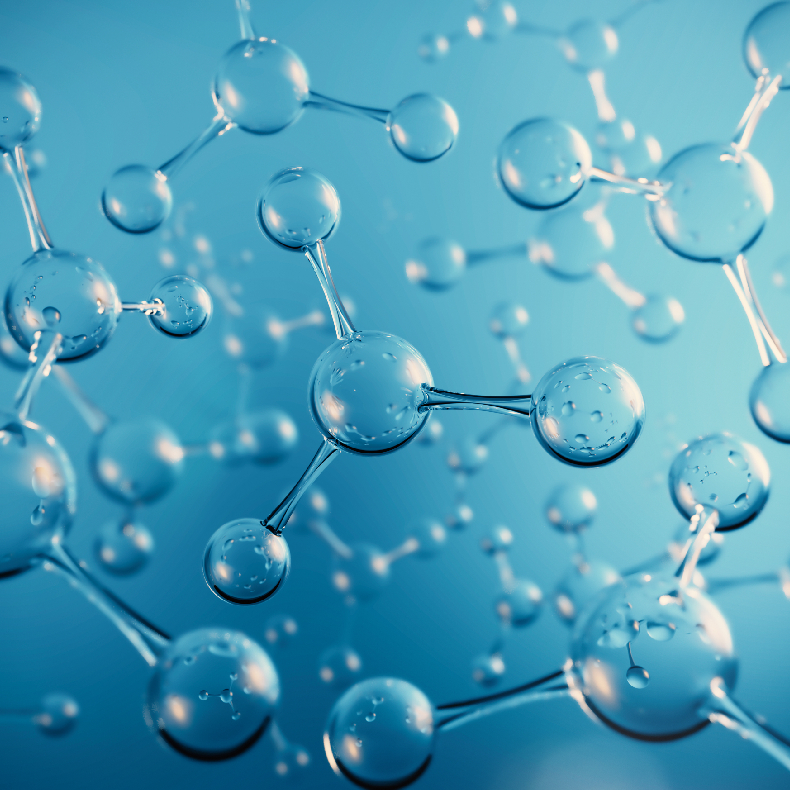From Specialist Dilek ÇOBAN
Do Not Ignore the Role of Natural Resources in the Healthy Development of Children!
What is Mineral Water and How is it Made ?
Minerals in mineral water can be defined as a liquid substance that is dissolved enough to give a certain taste and contains gas. It has taken many years for the mineral waters to form an underground formation. For decades, the rain fell on the earth, passing through layers of soil, sand, and mud. These layers, which act as a successful filter, cleaned the foreign substances in the water and added dissolved minerals and trace elements to it. As a result of this process, which lasted for a hundred years or more after the rain hit the ground, the mineral waters were formed on underground.
Mineral waters are generally located on the same fault group as the hot water source or in the same fracture system around the geothermal area. Mineral waters formed in the immediate vicinity of hot waters contain more carbon dioxide and show a similar chemical composition with hot waters.
The term “mineral water” is used today for different types of water from underground sources, packaged and marketed for consumption. Mineral water is a drinking water that contains various minerals and gases that are added naturally or later. Natural mineral waters can be separated from normal drinking water in terms of structure and source. Natural mineral waters are microbiologically sanitary waters and originate from the underground and emerge from the sinkhole naturally or by drilling.
Mineral water is a special form of groundwater that is distinguished from others by its composition properties. Separation criteria include having more than mineral content, increased carbon dioxide amount, increased welding temperature, iodine, sulfur, fluoride, radon, and rich in trace elements such as iron. The main components are cations; sodium, potassium, magnesium, calcium and anions; chloride, sulfate and bicarbonate. Quantities and ratios are as much as the layers of rock through which they pass allow.
Human Body and Elements
A normal human body contains hard tissues and electrolytes containing organic compounds of five main elements (carbon, hydrogen, oxygen, nitrogen, and phosphorus) and secondary elements such as calcium, sodium, potassium, magnesium, sulfur, and chlorine.
The elements outside of these elements are called trace elements. The most important requirements of trace elements for the human body are as follows: Fe (iron), Zn (zinc), Cu (copper), Co (cobalt), I (iodine), F (fluorine), Mn (manganese), Se (selenium), Cr (chromium), Mo (molybdenum), Si (silicon), Sn (tin), V (vanadium), Ni (nickel).
Trace elements have the following functions and benefits for the body:


Chemical and Physical Effects of Mineral Water
When mineral water is drunk, it has chemical and physical effects on the body. Physical effects are due to the mass and temperature of the water. It should not be forgotten that the light effect of hot water is affected by the excess work of the stomach and intestines due to the carbon dioxide in it. With the effect of carbon dioxide found in mineral waters, gastric and intestinal function increases and the mixing of fluids into the blood becomes faster. The chemical effects of mineral water are seen on the digestive organs, nutrient metabolism, substance exchange in tissues and cells, salt metabolism, and manifest as "diuresis" in the urinary tendency. In this context, if mineral water is used at the table, it ensures the healing of many diseases without human awareness.
The Benefits of Minerals in Mineral Water to the Body
Magnesium, which is one of the minerals rich in mineral water, is the most abundant cation in the cell after potassium. Magnesium is found with calcium and phosphorus in bone and tooth making, as well as providing osmotic pressure and acid-base balance.
Potassium affects cardiac activity, acid-base balance within the cell, osmotic pressure and metabolic events.
Sodium is the most abundant element in body fluids and regulates fluid distribution and fluid balance. In addition, acid-base balance and the transport of nerve stimuli are among the most important functions.
Calcium is the most common element in our body. It prevents bone loss and fractures due to aging. When there is a decrease in calcium intake, the storage in the bones starts to be consumed. Since it does not contain calories and cholesterol, mineral water can be shown as the best alternative to milk in terms of calcium.
The most important function of iron in the body is related to the transportation of oxygen and cell respiration. The need for iron increases during pregnancy and menstruation. The need for minerals and vitamins is higher during pregnancy. In order to provide this contribution naturally, it is beneficial to consume mineral water regularly during pregnancy.
Bicarbonates, magnesium, citrates, sodium, fluorine and calcium, with their natural balance in mineral water, are very effective in the course of urological diseases and especially after surgery.
Bicarbonates neutralize gastric acidity thanks to their alkaline structure and play an important role in the treatment of peptic ulcer disease due to this feature. Likewise, it has symptoms reducing effects in functional stomach and intestinal diseases.
The carbon dioxide gas in the mineral water is absorbed instantly and quickly by the gastrointestinal tract, but not all of the carbon dioxide gas in it goes into our stomachs. Some of it dissolves into the air when the bottle is opened and the product is waiting with its tip open. Some of them cause us to burp by combining with the air swallowed while drinking the product. In this case, most of the gas in the product cannot reach the digestive system, and the amount reached is immediately absorbed. During this rapid absorption, the beverage containing carbon dioxide gas is also rapidly absorbed in the intestines and allows the system to discharge faster than normal. This makes mineral water easier for digestion and prevents nausea. The absorbed carbon dioxide passes into the blood and most of it is transported to the lungs to be expelled from the body.
Carbon dioxide gas is transported in three ways in the blood; approximately 10% is mixed directly into the blood, 20% is combined with hemoglobin cells and the remaining 70% is combined with the water contained in the red blood cells and transported by the red blood cells in the form of bicarbonate.
Mineral waters on metabolism, especially those with sulphate, are useful in gallbladder laziness and also support pancreatic functions.
In the effect of mineral water on the stomach, mineral waters containing high bicarbonate are beneficial in chronic gastric mucosal inflammation or excess stomach.
The main causes of digestive system disorders are the fact that today's people have gained a habit of drinking little water, cannot eat enough with the necessary minerals, and have acquired a sedentary lifestyle. The most common of these is constipation, which has become ordinary. In this case, sulfated mineral waters are very useful.
It is obvious that vitamins will not function without the help of minerals, and our body needs the combination of these two. Since mineral waters are very rich in minerals, this need should be met from mineral water. At this point, it should be emphasized that the soda produced as an alternative to mineral water does not contain minerals and is produced by adding carbon dioxide to any potable water.
